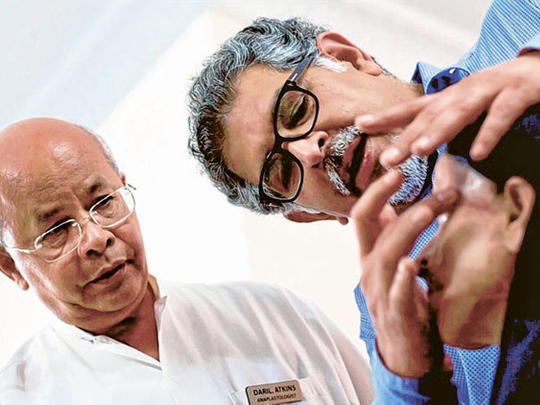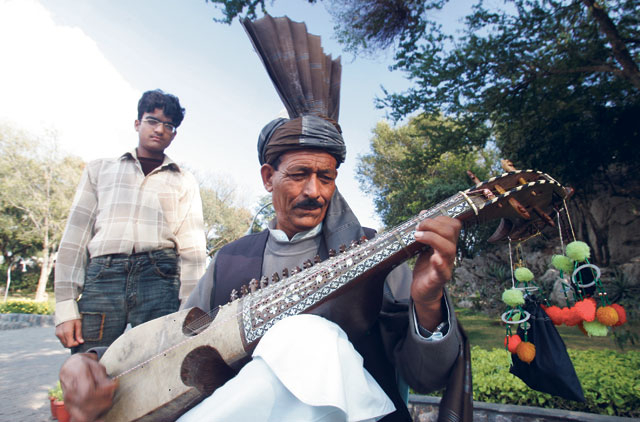
Dubai Long live plastic surgery!
That's how Dr Mohammad Jawad concludes his email interview.
It's entirely understandable. His call to glory works at different levels. He says it as much for himself as for the hundreds of people who are helped by it everyday. The latter category however does not comprise of people who feel their nose needs a slight tilt to the right or their lips need more plump and pout. Fortunately, the science and art of plastic surgery long ago shed its image as a creature that slithers along the hushed corridors of posh clinics catering to rich people with poor self-esteem.
The power of plastic surgery to reshape and rehabilitate trauma victims is, happily, a universally understood reality today.
Dr Jawad, a Karachi-born and currently London-based plastic surgeon is no stranger to fame. In 2008, his efforts at reshaping and rehabilitating Katie Piper, a well-known UK model and TV presenter earned him worldwide acclaim. (Piper was a victim of an acid attack by her ex-boyfriend. After her successful rehabilitation by Dr Jawad, she went on to set up the Katie Piper Foundation to help burn victims).
Turning point
The experience was a turning point in Dr Jawad's career. Soon he would find himself helping women in Pakistan who were victims of acid attacks.
Exuberant at the Oscar win, he urges everyone to look at the concerns exhibited by the film as an opportunity to tackle a serious issue. "I will encourage people to help identify weaknesses in [Pakistan's] society and find solutions. We must rise to such issues, learn, resolve and move on."
The mood at the Oscars for Saving Face he says was of hope, encouragement and empowerment for women in Pakistan. "Sharmeen's message was loud and clear, and very powerful."
The idea of projects like Saving Face he says is not, as some critics have pointed out, to brand a whole society but to identify an issue, address it and show some great results. "We all have to first acknowledge that we do have a problem in some parts of society," he says. "It's not a part of a national identity. It's a man-made disease. We need to have prevention, legislation, restoration, state-support and psychological rehabilitation."
His emotional attachment to Pakistan is deep and strong and he says it is important to participate in the transfer of skills so the country can benefit from contemporary knowledge base. The process, he believes, should be a sustained one. "I benefited from state-sponsored, almost free graduate education. It provided me the platform to build my career."
He rues the issue of brain drain and says he would like to see the knowledge circulate back to Pakistan. "The gap is getting wider and wider. We must address this together as a society. How best can we overcome our shortcomings?" Many people, he says, are doing it in individual way. "I plan to get them together on a platform in a more sustainable and verifiable way so we can monitor the success of the skills transfer." The euphoria of the Oscars is settling down. After this extraordinary achievement, it's time to get back into the operation theatre and pick up the scalpel again, he says. His unswerving passion for reconstructing the hopes and dreams of his patients runs on a trajectory of its own. He may from time to time find another trajectory, powered by a blaze of fame like the recent one, crossing his own but his momentum is self-driven.
"Sometimes wishes and dreams come true," he says, referencing his ambitions as a young surgeon who wanted to interact with the glamorous and glorious people if he took up plastic surgery. "I was amidst the most celebrated and glamorous people in the world [for the Oscars]." But the dream realisation has another dimension to it. It also came true perhaps because, as he puts it, "it was part of an attempt in restoring the glory of the human spirit."













